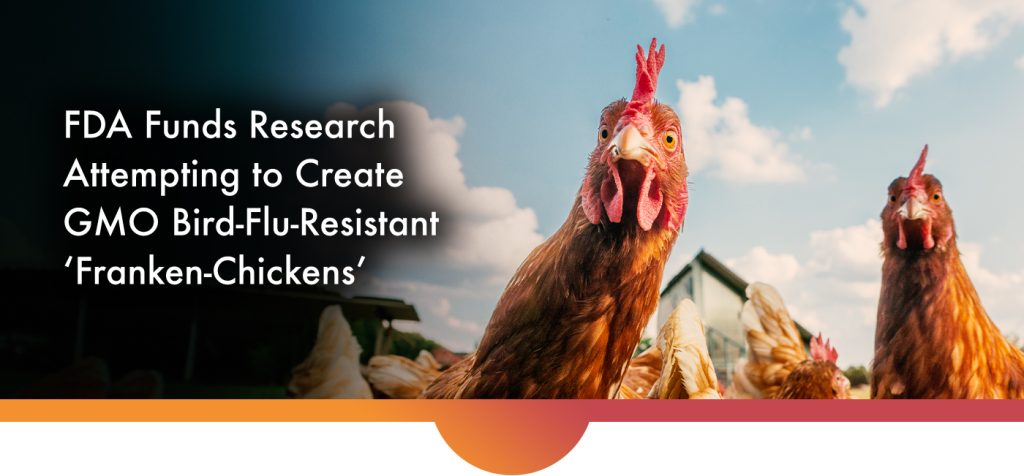

Because of donors like you, we’re able to take bold legal action. Join us in continuing the fight—donate here.
ICAN has now obtained documentation of an FDA grant to the University of Wisconsin-Madison (UW-Madison) and Utah State University to create the Building Resistance Against Viral Entities Innovation Center and fund research to “generate chickens with intentional genome alterations that are resistant to viral pathogens…”
Lead Counsel, Aaron Siri, Esq., lays out the details here:
The justification for creating franken-chickens is that bird flu vaccines do not prevent infection or transmission, meaning they are “leaky.” Leaky vaccines provide an environment for the virus to rapidly mutate to a potentially more virulent strain. So, researchers are looking for another method of “protection” against the virus. UW-Madison states in its grant application:
Vaccination can [be] effective for controlling avian viruses. However, this control measure faces significant challenges that often undermine its effectiveness. Viruses like HPAI [highly pathogenic avian influenza] mutate rapidly under immune pressures resulting in virus isolates that are less susceptible or resistant to the vaccine. Additionally, vaccinated birds can still become infected and shed the virus asymptomatically, complicating disease control by allowing the virus to circulate unnoticed within poultry populations.
This is important information to keep in mind if the government attempts to roll out a mass vaccination campaign on humans for bird flu.
While UW-Madison proposes that “genetic modification could provide a more robust and permanent solution,” it ironically acknowledges a previous study where gene modifications failed to overcome virus mutations:
[R]eplicating virus was detected in one bird and breakthrough infections were detected at higher doses of virus, suggesting potential limitations with this specific IGA [intentional genomically altered] chicken line. In a real-world setting, a mutant virus that adapts to overcome the edited host factor could spread throughout the flock, ultimately compromising the effectiveness of the IGA line.
Another major concern is that these genetically altered chickens will likely end up in our food supply. Genetically modified salmon and pigs have already been approved for human consumption, and this grant application explicitly states that this research provides “a path forward for eventual FDA approval of an IGA chicken line.”
What health or other effects do these types of genetic alterations have on the safety and nutritional value of poultry meat or eggs? Could failed attempts at genetic modification encourage mutations into more virulent strains, similar to what leaky vaccines cause? ICAN intends to keep a close eye on this disturbing franken-science. We will shine a bright light on these activities and take appropriate legal action.
To support future legal actions like this, click here to donate!
